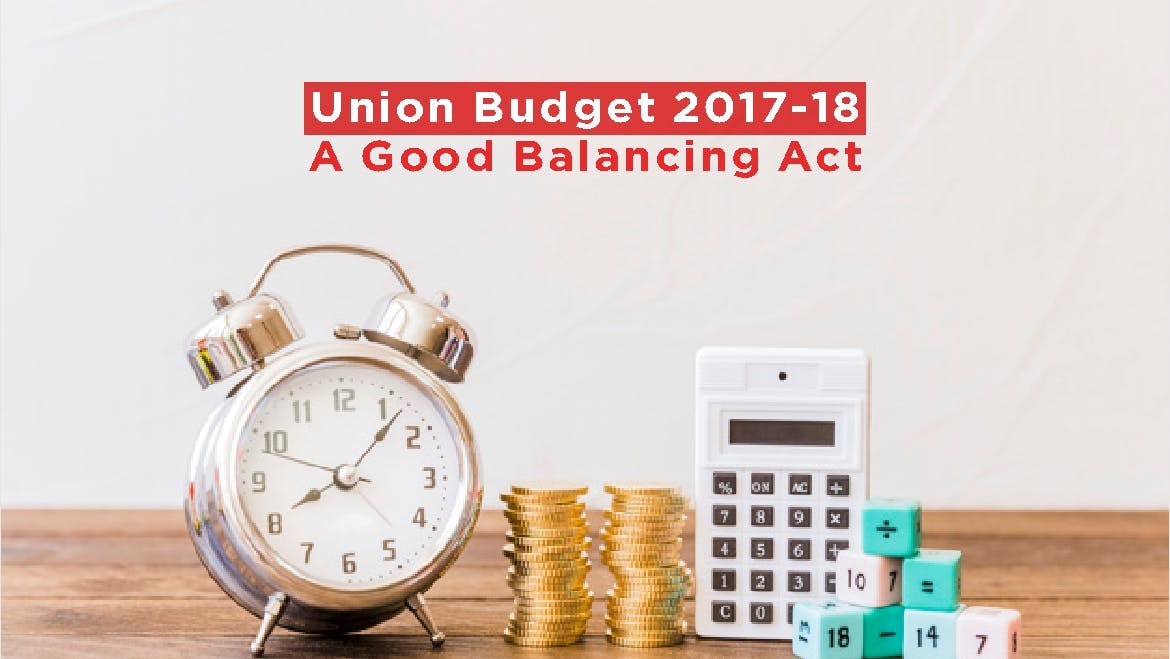Union Budget 2017-18: A good balancing act
The common man may not have got a great deal out of Arun Jaitley’s fourth Budget but the speech showed the Finance Minister has perfected the art of tightrope walking.
He failed to live up to his promise as far as tax concessions are concerned. He did reduce tax rates in the minimum slab from 10 percent to 5 percent and give a rebate of Rs 2,500 from salary between Rs 2.5 lakh to Rs 3 lakh (thus increasing the zero tax level to salaries upto Rs 3 lakh). This fell a bit short of expectations that he would exempt tax up to Rs 4 lakhs.
But the macro-level announcements are positive for the economy. First is the reduction in fiscal deficit, which will go down well with the purists, who were talking of following the principles of FRBM (Fiscal Responsibility and Budget Management Act). The FM gave himself some leeway by moving the fiscal deficit target to 3.2 percent for FY18 which will be lowered further to 3 percent in FY19.
Jaitley’s balancing act is visible where he increases capital expenditure outlay by 25.4 percent but at the same time reduces borrowing from Rs 4.25 lakh crore to Rs 3.48 lakh crore. The move should ensure a growth impetus to the economy without triggering inflation and higher rates. Bond markets have slipped on the lower borrowing target, but the spotlight will now be on the RBI governor to reduce interest rates over the medium term.
This also means that the government is optimistic of a strong tax growth, given demonetisation impact, and possibly higher receipts from divestment and spectrum sale.
Focus of the Budget was on rural economy, infrastructure, digital economy and broadening the tax base. Agro economy benefits from a targeted allocation and focus on the farmer’s income rather than diffused spending on the sector as a whole.
The affordable housing sector has been given infrastructure status: This will revive the housing sector, along with the interest subvention allowed earlier.
Increased focus on transportation sector, which has a higher multiplier effect on the economy also will contribute to GDP growth. Further, no changes in taxes on the stock markets and clarifications on FPI taxes will go down well with the market.
What has, however, left a bad taste is that there has been no reduction in corporate tax rates, though rates have been reduced for SME segment which accounts for 96 percent of registered companies.
Overall an expansionary Budget, continuing with the earlier trend of a focus on rural economy, infrastructure, employability and employment generation, all without much impact on the honest tax payer.
Courtesy- Shishir Asthana | Moneycontrol Research | Feb 01, 2017
